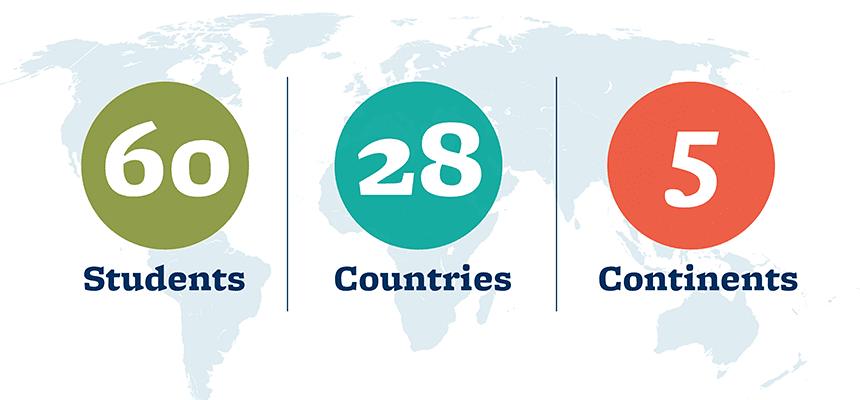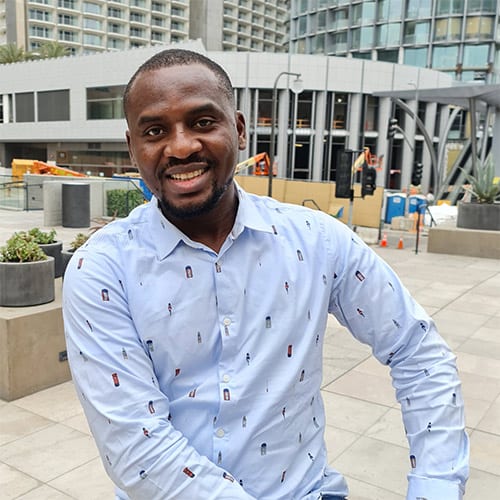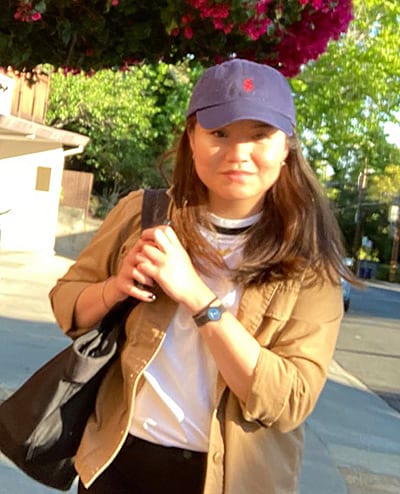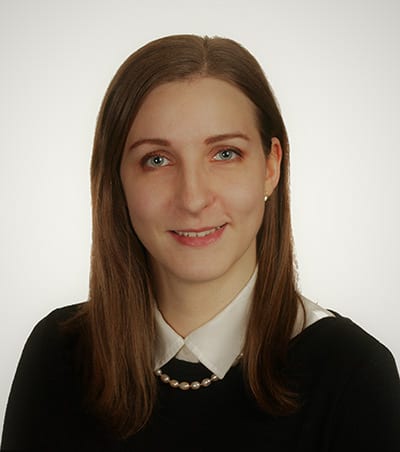
By Andrew Cohen
With 60 new students recently joining Berkeley Law’s LL.M. Program for the summer term, the school adds a wealth of international experience, inspiring achievements, and diverse perspectives to its learning environment.
Overall, the new LL.M. Executive Track cohort represents 28 countries from five continents. Here are just three examples of this remarkable group.
Joshua Abe

Growing up in Nigeria, Abe didn’t have access to many things most law students take for granted: electricity, decent roads, sufficient food, good water. The sting of such conditions became more acute by learning in school that Nigeria, Africa’s largest country by population, was also its richest.
“My parents explained that the political elite, whose duty it was to channel Nigeria’s resources to the well-being of the people, had abdicated their duty and placed their interests above the people’s,” Abe says. “My parents made me understand that through education and hard work, I could live above the poverty line.”
After graduating in the top 3% of his law school class at the University of Benin, Abe wanted to lift others out of economic hardship as well.
“By providing financial guidance and mentorship support to people, I could help them also live above poverty (and engage) public office holders on issues of development and good governance,” he says. “I could ensure increased government accountability and indirectly contribute to the general well-being of the people.”
Working with Nigeria’s National Youth Service Corps in 2012 as part of the nation’s compulsory one-year service for post-secondary school education grads, he worked with the government of Niger State to provide shelter for colleagues who were displaced due to post-election violence there.
Now a litigation and arbitration senior associate at Aluko & Oyebode, a top Nigerian commercial firm, Abe has spent extensive time doing pro bono work for wrongfully detained Nigerians protesting governance and brutality. He has also mentored over 200 students, interns, and young lawyers.
Focusing on development, international business law, and dispute resolution, Abe calls Berkeley Law “a peerless center for legal education, reputed for breeding lawyers who make a groundbreaking impact in transforming societies … Berkeley’s unparalleled course offerings, stellar faculty, intellectual rigor, and diverse and accomplished student body assures me that this LL.M. Program will eminently prepare me in my quest for a just Nigerian society.”
Ha Mi Le

A native of Germany, Le worked for the German Parliament before enrolling at Berkeley Law. As a legal clerk there, she continued her work on decolonization issues with people from government, academia, and civil society.
Le has also worked at Hausfeld LLP, for the European Center for Constitutional and Human Rights, and at the chair of Professor Susanne Baer, Justice of Germany’s Federal Constitutional Court. Advocating for vulnerable groups such as children and refugees, she partners regularly with researchers in both legal and social science academia.
Her time at Berkeley Law, Le says, has already been revelatory — and instructive.
“What I find most fascinating from my experience so far is the emphasis on the importance of equal protection and substantive due process right from the beginning,” she says. “This is an approach universities in Germany should definitely adopt and expand on. Getting to know the U.S. from a legal perspective is an amazing learning opportunity for me and both personally and academically enriching.”
Le has worked on gender justice issues with several organizations, with a focus on strategic litigation, intersexuality, and intersectional justice. She co-developed and co-edited an academic blog, grundundmenschenrechtsblog, that allows students and researchers to write about current developments in fundamental human rights.
“Whether using the law to defend human rights, advocate against decolonial injustices, or litigate against monopolist corporations, through Berkeley Law’s emphasis on interdisciplinary learning, I aim to equip myself with the skills that will allow me to right wrongs,” she says.
Irena Duric

Fluent in four languages, Duric graduated in the top three of her class of 150-plus students at Slovakia’s Pan-European University School of Law. She then spent five years in a boutique corporate law firm that specializes in mergers and acquisitions, project finance, and litigation mainly in the energy sector.
Eager to become legal counsel within the technology industry, Duric wants to “systematically improve the world through effective and compassionate policies that protect the individual’s right to privacy.”
As corporations grow increasingly influential in shaping our technology, society, and cultural norms, she believes it’s “imperative to establish legal boundaries to guide them to responsibly and ethically manage our personal information.” Duric says pursuing a Berkeley Law LL.M. will “further advance my education and practice as an attorney in the United States, where the largest technology companies reside.”
Now working in tech compliance at the Electric Power Research Institute, a nonprofit in Palo Alto, Duric helps advance its mission of implementing safe, reliable, affordable, and environmentally responsible energy for countries across the world.
Calling Berkeley “the ideal university” to pursue her LL.M. degree, she cites the school’s “rigorous academic curriculum and strategic location near Silicon Valley” as well as its “relevant courses and specialization offering in law and technology.”
Outside of the classroom, Duric says “Berkeley Law also provides an extraordinary cohort and distinguished alumni network that contain a wealth of practical real-world experience to learn from. These valuable relationships are unique to Berkeley and they will endure beyond my time in law school.”